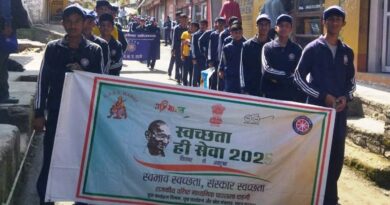State cannot be permitted to act as an exploitative master: Himachal High Court
Himachal Pradesh High Court directed the state Finance department to provide all the arrears of monetary benefit to the petitioners who are the employees of the state government, accusing the latter of depriving them under the guise of contractual appointment.
The Division Bench of Justice Vivek Singh Thakur and Justice Bipen Chander Negi have ordered in the eight-page order passed recently that the state could not be permitted to act as an exploitative master.
The Division bench delivered this verdict before the Court Dussehra Holiday copy of which is with us.
The court held that petitioners are entitled to count their services from the date of initial appointments on the contract for the purpose of seniority and all consequential benefits as the initial appointment should be provided to them including their contractual period.
The court said that in the sequel to entitlement for counting contract service the seniority of the petitioners should also be entitled to counting the said contract service for the purpose of granting annual increments and pensionary benefits.
The DB accused the commission and omissions on the part of the state are arbitrary and such conduct is the antithesis of the mandates under article 14 of the Constitution of India.
The court made strong remarks against the respondent government of Himachal Pradesh that such arbitrary conduct does not behoove the state being a model employer and protector of the rights of the people.
The court also stated that the state cannot and cannot be permitted to act as an exploitative master by cleverly devising a method under the garb of provisions of R & P rules by providing contractural appointment at the initial state to deprive the service benefits.
The court said that undoubtedly the contract appointment of the petitioners was not a back door entry but was made following R& P rules framed by the state for direct recruitment against the said post. The appointment of the petitioners on a contract basis was a fortuitous circumstance because the department made a decision not to grant regular appointments at the initial stage.
The HC said that substantive appointments were made against the sanctioned post through a process undertaken by the prescribed agency for recruitment under rules through a competitive process where all eligible candidates were considered and evaluated.
There is no justifiable and plausible reason available on the record for not offering regular appointments at the initial stage but to offer an appointment on a contract basis for the initial five years followed by the regularisation despite the availability of sanctioned posts and work and assignment and performance of identical nature of work and duties by the contract appointees as well as regular appointees. ”
It appears in order to avoid its liability to pay salary attached to the post and to deprive the employees of lawful service benefits available to them, the exploitive policy of contract appointment for initial five years has been and is being adopted and practiced. ” the DB held.
The court also made remarks ” It is not a case where for a sudden temporary increase in workload, employees were required and necessitated to be engaged to cope with the emergent situation for a limited period but recruitment was for permanent sanctioned posts created for the performance of ever existing work. ”
It is not expected from the state to deprive the employees of the lawful and just benefits emanating from the service rendered by them.
The court stated that the claim of petitioners for counting their contract service is securely covered by the aforesaid judgment in Tej Mohammad’s case and the judgment referred to and relied on.
The DB said that the reasons and the grounds assigned for deciding the aforesaid Writ Petition (2017) should be applicable to ‘mutatis mutandis’ in the present case for all intents and purposes.
The court did not accept the contention of the Additional Advocate General who relied on the Jai Dev Gupta v/s State of Himachal Pradesh case. The Respondent stated that actual monetary benefits are to be restricted for a year period to the filing of the petition as the petitioners have approached the court at a belated stage.
The court held that submission of the state is not sustainable as petitioners were regularised in May 2016 but without giving the benefit of their contractual services and they approached the court in April 2017.
The court said that it did not find any delay redressal of their grievances and they should be entitled to all consequential benefits from the date of their initial appointment.
The Petitioner in Chaman Lal and others v/s state have approached the court seeking various relief with respect to fixation and protection of pay, granting of Grade Pay, and consequential benefits.
According to the petitioners they have to be appointed as Tehsil Welfare Officers in the Department of Social Justice and Empowerment by the state government in May 2010 on a contract basis. The services of the petitioners regularised on May 5, 2016, after the completion of the request for five years of continuous contractual services.
The court said that all the benefits including seniority should be settled and extended to the petitioner on or before December 31, 2023, and payment of areas of monetary benefits may be disbursed by the respondents in terms of instruction of the Finance Department including instruction dated January 7, 2012, and September 17, 2022.



